Description

List of the 5 largest companies in North Rhine-Westphalia
North Rhine-Westphalia is Germany’s most populous federal state and contributes a good 20 percent to Germany’s economic output – more than any other state. Companies of world renown have their headquarters on the Rhine and Ruhr. These are the five largest:
1. Deutsche Telekom AG, Bonn
Deutsche Telekom was created from Deutsche Bundespost TELEKOM in 1995 – the final step in the privatization of the former state-owned company. Today, Telekom is Europe’s largest telecommunications provider and is one of the TOP 100 listed companies worldwide. The group is divided into six divisions: Germany (Telekom Deutschland), Europe, T-Systems, USA (T-Mobile US), Group Development and GHS (Group Headquarters and Shared Services). Telekom operates fixed and mobile communications networks and offers telephony, Internet access and other digital services based on these networks. The Group has over 225,000 employees. This makes it one of the most renowned companies in North Rhine-Westphalia.
Update 2023: The topic of cyber security will play an even more important role in the future. At the beginning of 2023, the EU Commission announced that it would commission Deutsche Telekom to build a high-security communications network. Together with Airbus DS, Thales SIX, AIT and experts from science and industry, a highly secure system called EuroQCI is to be created based on quantum cryptography.
2. Deutsche Post AG, Bonn
Like Deutsche Telekom, Deutsche Post emerged from the former Deutsche Bundespost in 1995. Since 2015, its external identity has been “Deutsche Post DHL Group”. The national postal business operates under the brands “Deutsche Post” (letter) and “DHL” (parcel). The international logistics business also operates under the “DHL” brand. The operating business is divided into the Post & Parcel Germany, DHL eCommerce Solutions, Express, Global Forwarding, Freight and Supply Chain divisions. Deutsche Post is a leading global logistics service provider with a good 570,000 employees. Overall, Deutsche Post AG is one of the most relevant companies in North Rhine-Westphalia.
Update 2024: DP recently surprised everyone with positive news. In this context, the Group is pleased about the increasing number of branches in Germany. This also secures jobs.
3. Uniper SE, Düsseldorf
Uniper was formed in 2016 by spinning off its conventional power generation business from energy group E.ON. Since 2020, Uniper has been majority-owned by the Finnish energy company Fortum, in which the Finnish state has a stake of just over 50 percent. Uniper is one of Europe’s largest power producers with core markets in Germany, the Benelux countries, the United Kingdom, and Sweden. In Russia, Uniper operates five power plants and meets about five percent of Russia’s electricity needs. The company also participates in global energy trading and has nearly 12,000 employees.
4. Bayer AG, Leverkusen
Bayer was founded as early as 1863 in what is now Wuppertal, and since 1895 its headquarters have been located in Leverkusen, north of Cologne. Bayer is a major global chemical and pharmaceutical group. Its business comprises the three divisions Pharmaceuticals, Consumer Health and Crop Science – each organized in its own subsidiaries since 2002. A quantum leap in 2018 was the acquisition of the US seed and herbicide company Monsanto. This brought the active ingredient glyphosate into the group as a “legacy”. The Bayer Group has almost 100,000 employees and operates on a global scale.
5. thyssenkrupp AG, Essen
The merger of Friedrich Krupp AG Hoesch-Krupp with Thyssen AG in 1999 created thyssenkrupp AG – an industrial group organized into four divisions focusing on steel production and processing. The thyssenkrupp business is divided into the business areas Steel Europe, Material Services, Industrial Solutions and Components Technology. A planned merger with the Indian steel group Tata Steel did not materialize in 2019. The elevator business was sold in 2020. More than 100,000 employees still work at thyssenkrupp today. The company is Germany’s largest steel producer.
Image Source: Eric Weber

This information is included in the list
- Company name
- General contact data (address, e-mail address, telephone number, URL)
- Name of the management
- Serial letter suitable for addressing the management (e.g. “Dear Dr. Müller”)
- Sales figures for the years 2021, 2020, 2019, 2018, 2017, 2016 and 2015 (taken from the annual and consolidated financial statements)
- Employee figures for the years 2021, 2020, 2019 and 2018 (taken from the annual and consolidated financial statements)
- Sector classification & Field of activity
Note: If the sales and employee figures are not included in a company’s own financial statements but in the parent company’s consolidated financial statements, the data from the respective consolidated financial statements are provided.
The economy in NRW: Statistics and facts
When people talk about North Rhine-Westphalia, they often associate it with the Ruhr region – characterized by coal and steel. Although the Rhine-Ruhr region is still an industrial heartland of the state and the steel industry still exists, it has lost its traditional monopoly position and coal mining has been discontinued.
Since the 1960s, the Ruhr region has been undergoing a serious structural change – combined with the departure of old industries and a fundamental reorientation. It is not over. In 2019 goods and services worth around 711 billion euros were produced in NRW. This means that North Rhine-Westphalia surpasses all other German states. A good one in five euros generated in Germany comes from the Rhine and Ruhr. In terms of economic output per capita, however, NRW only ranks 7th in a state comparison.
Today, industry accounts for almost one fifth of North Rhine-Westphalia’s economic output. Strong industrial sectors in the state are mechanical engineering (with around 1,600 predominantly medium-sized companies); automotive production (Ford in Cologne) and supply (Hella, among others), chemical industry (especially Bayer in Leverkusen, Evonik Industries in Essen), electrical engineering and the electrical industry. ThyssenKrupp in Essen stands for steel tradition and is Germany’s largest steel producer. 44 percent of German steel comes from NRW.
The state is also home to major utilities such as E.ON, RWE and Steag. Almost a third of Germany’s electricity comes from NRW. Trade accounts for almost a quarter of North Rhine-Westphalia’s economic power. Of the 50 largest German trading companies, every second one is located in NRW, including Aldi, Metro and Rewe. The financial and corporate services sector is at least as strong. Some well-known insurance companies (including Ergo, Gothaer, Signal/Iduna) have their headquarters in NRW. In summary, a number of heavyweights can be found among the top German companies in North Rhine-Westphalia.
Picture source: Nikolay Kovalenko via Unsplash (13.07.2023)

Any questions? Get in touch!
Leo Semmelmann, Founder
contact [at] researchgermany.com
+49 (0) 89 92927741
We are looking forward to help you in case of any questions, remarks and individual requests. Feel free to get in touch via email, live chat or phone. We can also offer you package prices and can create individual lists.

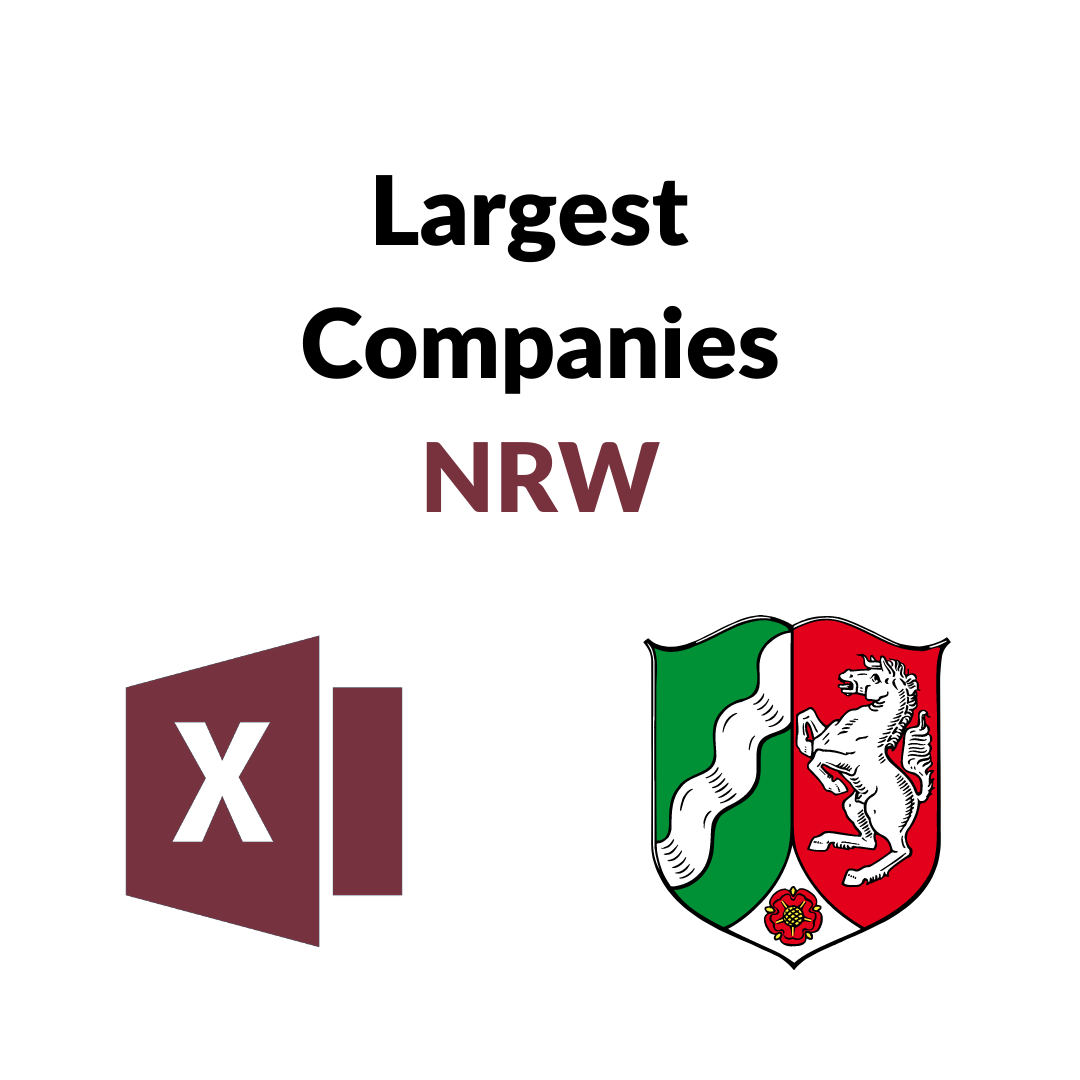
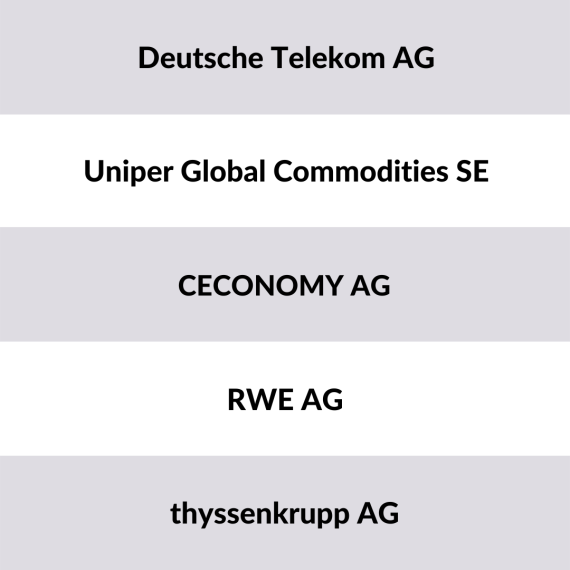
 Contains the 1,500 largest companies in North Rhine-Westphalia from numerous sectors such as industry, chemicals, trade, logistics, consumer goods, services, etc. The list is an excerpt from our
Contains the 1,500 largest companies in North Rhine-Westphalia from numerous sectors such as industry, chemicals, trade, logistics, consumer goods, services, etc. The list is an excerpt from our 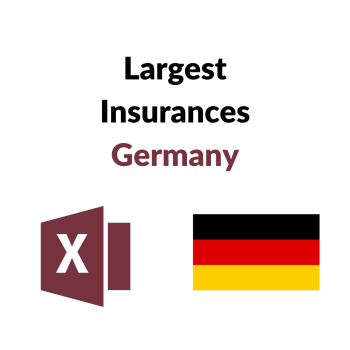
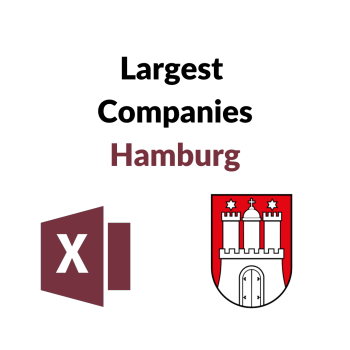
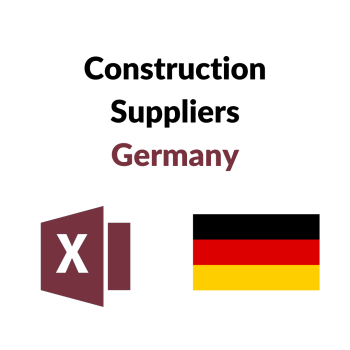
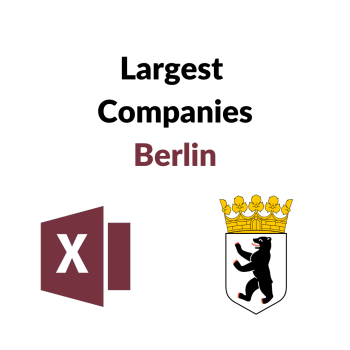
Reviews
There are no reviews yet.